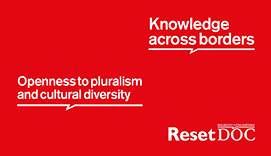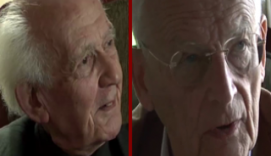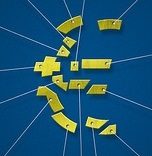Interview and editing: Nina zu Fürstenberg
Video: Anna Fanuele
Full transcript of the interview:
Europe definitely needs more Europe, more federalism, but probably not this way. So, in my thought I started to think about other ways, other tracks, which would put the European project back on the agenda. Which could be these tracks? I came up with three ideas.
One is the green economy: Europe should show the world, exactly like it did after 1945, that “impossible things” are actually possible – because in 1945 peace was impossible, there was no more fighting, but there was no peace either. The way those countries which had fought each other started to integrate through the European project showed that peace was actually possible and it came afterwards. This is the kind of thinks where Europe can offer the best to its neighborhood. Exactly like in this “peace project” Europe can now come up with a “green project” for itself but also for its neighborhood, because the world needs environmental consciousness and awareness. And the area on the planet that is taking the most care of its environment is of course Europe.
The second track is coexistence with Islam. This is something Resetdoc has extensively covered and certainly one of the ways the will allow the European project to progress is to understand the importance of the coexistence of this ‘other’ religion. Europe never really coexisted at an equal footing with Islam. This will be a big challenge for Europeans, but also for those countries that are waking up in the neighborhood of Europe, In the Middle East, but also in North Africa and beyond. This is a new track that Europeans need to think of.
The third track is the Enlargement project. This project has been shattered recently and there no more faith on this policy which was very successful. Europeans had no idea about it. Recently, the EU broker deal between the Kosovars and the Serbians was a landmark event: it happened on April 23, 2013 and these two very old foes in the Balkans, the Albanians and the Serbians, have actually agreed to recognize each other indirectly. Today they would both become members of the EU and they would have a common border. This is a major achievement, and Europe has still a potential: it is still a wonderful project. All those countries that are in its neighborhood don’t have the same political and economic standards as the European countries.
Europe needs first of all to stop fearing itself and its neighborhood and look for the 21st century with new motivation.






